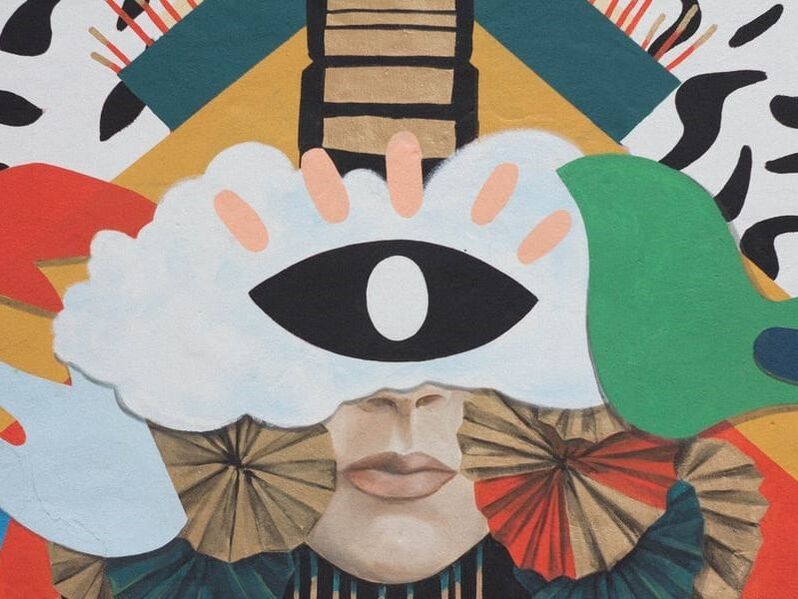|
|
|
Difference is something that exists in the bodies and culture of ‘others’
Sara Ahmed, 2007 In the wake of the recent intensification of activism and debate on why and how Black Lives Matter it is important to keep interrogating the multifaceted ways in which racism is pervasive within institutional practices – often in not immediately visible ways. In the UK, the current hostile environment (Grierson 2018) is designed to create forms of social disadvantage for migrants, especially those in situations of vulnerability, feeding into an ever expanding and invisibly coercive system of oppression. Our London-based research explored the kind of support that asylum seeking and migrant women receive by charities, especially around mental health. Compared to statutory services, charities are able to better understand and address the complex intersection of social, political, economic and emotional factors at stake in mental health, as opposed to psychiatric diagnoses which often tend to decontextualise people’s experiences of distress. Third Sector Organisations (TSOs) are well suited to respond to complex needs of asylum seeking and refugee women because the support they provide relies on empathetic understanding for different aspects of these women’s lives – ranging from acknowledging culturally embedded notions and experiences of mental health to being responsive to the structural position they are placed in by the state and society. Both material and emotional support are particularly important for newly arrived migrants, who have weaker social ties in the host country, are often less able to navigate support systems due to language barriers and because they are unfamiliar with or denied access to statutory services.
In this context, our Identities article, 'Diversity as discourse and diversity as practice: critical reflections on migrant women’s experiences of accessing mental health support in London' questions the concept of diversity, and in particular how discourses of diversity that have become prominent in policy and academia compare with the way diversity is practiced in grassroots organisations. Is the term ‘diversity’ useful and who benefits from it? Is there an alignment between the way diversity is talked about and the way it is practiced in the everyday life of people who work in the charity sector? Diversity has become a buzzword and a mantra in recent years, gradually replacing multiculturalism. Several scholars contend that diversity has acquired such currency exactly because of its lack of a political edge. Yet intersectionality, which is a deeply political paradigm born within Black Feminism (Lutz et al. 2011), is informing future developments of the diversity paradigm and is contributing to move it beyond its sole focus on race and ethnicity.
Our study argues that the legacy of previous multiculturalist discourses and systems of classification persists in the way diversity is applied on the ground. Despite the incessant effort by London TSOs to provide integrated services able to address a wide range of service users’ multiple and complex needs, the ongoing institutional emphasis on the maintenance of culture over socio-economic imperatives in addition to cultural and linguistic profiling still leads to the emergence of social hierarchies justified on grounds of cultural difference. Essentialist understandings of culture often held by health professionals can lead them to look for cultural explanations for socio-economic problems and structural barriers. Our work demonstrates that while TSOs are less susceptible to using culture as their primary explanatory lens when working with migrant, refugee and asylum-seeking women, they nevertheless draw on the vocabulary of ‘culture’ (and ‘vulnerability’, see Mesarič and Vacchelli 2019) to validate their expertise as uniquely suited to their particular client group, and thus legitimate the need for their services. Alana Lentin (2014) suggests that 'the reference to cultural difference implies a hierarchy in societies that are stratified along ethno-national and often colour-coded lines’ (page 1273). Sara Ahmed (2007) maintains that diversity affects public feelings, making organisations and institutions feel better for using the signifier of ‘difference’ in certain ways. The use of difference also implies the emotional work of making difference count, as is exemplified by the efforts of TSOs to address mental health needs of migrant populations in an integrated manner, taking on board the complex combination of barriers they experience. In conclusion, (i) tackling structural barriers, (ii) considering power relations inscribed in migrants’ circumstances rather than ascribing specific problems to certain cultural groups, and (iii) assessing the extent to what health practitioners are also embedded in their own cultural horizons and practices could help to break the cycle of colour-blind discrimination in welfare provision and mental health support. References: Ahmed, S. 2007. The language of diversity. Ethnic and Racial Studies 30 (2): 235-256. Grierson, J. 2018. Hostile environment: anatomy of a policy disaster. The Guardian, 27 August. Lentin, A. 2014. Post-race, post politics: the paradoxical rise of culture after multiculturalism. Ethnic and Racial Studies 37 (8): 1268-1285. Lutz, H., Herrera Vival, M. T. & Supik, L. eds. 2011. Framing intersectionality. Debates on a multi-faceted concept in gender studies. Farnham (UK) and Burlington (USA): Ashgate. Mesarič, A. and Vacchelli, E. 2019. Invoking vulnerability: practitioner attitudes to supporting refugee and migrant women in London-based third sector organisations. Journal of Ethnic and Migration Studies.
Blog post by Elena Vacchelli, University of Greenwich, UK and Andreja Mesarič, McPin Foundation, UK
Read the full article: Vacchelli, Elena & Mesarič, Andreja. Diversity as discourse and diversity as practice: critical reflections on migrant women’s experiences of accessing mental health support in London. Identities: Global Studies in Culture and Power. DOI: 10.1080/1070289X.2020.1785181
0 Comments
Your comment will be posted after it is approved.
Leave a Reply. |
|
Explore Identities at tandfonline.com/GIDE |
|
The views and opinions expressed on The Identities Blog are solely those of the original blog post authors, and not of the journal, Taylor & Francis Group or the University of Glasgow.

